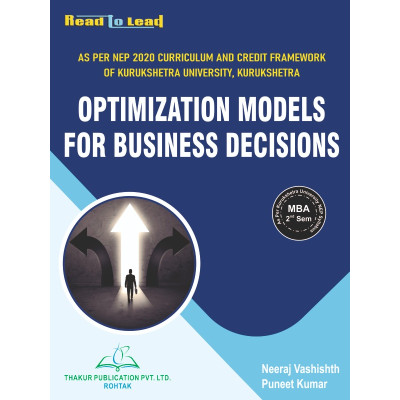Categories
- Pharmacy
-
Nursing
-
MBA
-
BBA
- U.P. State University
- Veer Bahadur Singh Purvanchal University, Jaunpur
- Chaudhary Charan Singh University, Meerut
- Dr. Bhimrao Ambedkar University, Agra
- Chhatrapati Shahu Ji Maharaj University, Kanpur
- Mahatma Jyotiba Phule Rohilkhand University, Bareilly
- Mahatma Gandhi Kashi Vidyapith, Varanasi
- Dr. Ram Manohar Lohia Avadh University, Ayodhya
- Deen Dayal Upadhyaya Gorakhpur University
- Prof. Rajendra Singh (Rajju Bhaiya) University, Prayagraj
-
BCA
- UP State Universities
- University of Pune
- I.K.Gujral Punjab Technical University (PTU)
- University of Rajasthan
- Rashtrasant Tukadoji Maharaj Nagpur University
- Uttar Pradesh NEP2020
- University of Rajasthan ,Jaipur (According to NEP-2020)
- BCCA (B. Com - Computer Science)
- Haryana
- West Bengal
- BBA (CA)
- PUNE BCA (Sci,Commerce)/B.Com (CA)
- Dr. A. P. J. Abdul Kalam Technical University, Lucknow ( AKTU )
- MCA
-
B Ed
- Lucknow University B.Ed Books
- Chaudhary Charan Singh University/Maa Shakambhari University, Saharanpur
- Dr Bhim Rao Ambedkar University, Agra
- Mahatma Gandhi Kashi Vidyapeeth, Varanasi
- Chhatrapati Shahu Ji Maharaj University
- Prof. Rajendra Singh (Rajju Bhaiya) University, Prayagraj (PRSU)
- Mahatma Jyotiba Phule Rohilkhand University(Mjpru), Bareilly
- Dr. Ram Manohar Lohia Avadh University, Ayodhya
- Bundelkhand University, Jhansi
- B.A,B.ed
- B.Sc, B.ed
- Deen Dayal Upadhyaya Gorakhpur University
- Veer Bahadur Purvanchal University (VBPU)
- Maharaja Suhel Dev State University ,Azamgarh (MSDSU)
- Raja Mahendra Pratap Singh State University, Aligarh (RMPSSU)
- Barkatullah Vishwavidyalaya (Bhopal)
- Jiwaji University (Gwalior)
- Vikram University (Ujjain)
- Dr. Harisingh Gour University (Sagar)
- Devi Ahilya Vishwavidyalaya (Indore)
- Rani Durgavati Vishwavidyalaya (Jabalpur)
- Awadhesh Pratap Singh University (Rewa)
- Maharaja Chhatrasal Bundelkhand University (Chhatarpur)
- D. EL. ED
- TET
-
B Com
-
B Sc
- B.Sc. U.P. State Universities Common Syllabus NEP
- Veer Bahadur Singh Purvanchal University, Jaunpur
- University of Lucknow
- Chaudhary Charan Singh University, Meerut
- Madhya Pradesh
- Chhatrapati Shahu Ji Maharaj University, Kanpur
- Dr. Bhimrao Ambedkar University, Agra
- Mahatma Gandhi Kashi Vidyapith, Varanasi
- DEEN DAYAL UPADHYAYA GORAKHPUR UNIVERSITY
- Prof. Rajendra Singh (Rajju Bhaiya) University, Prayagraj
- Dr. Ram Manohar Lohia Avadh University, Ayodhya
- Mahatma Jyotiba Phule Rohilkhand University, Bareilly
- Uttarakhand State Universities
- B.Sc. Bihar Universities Common Syllabus NEP
- University of Rajasthan (Jaipur)
- Haryana
-
Bachelor of Arts [B.A.]
- B.A. Of U.P. State Universities Common Syllabus NEP
- Veer Bahadur Singh Purvanchal University, Jaunpur
- University of Lucknow
- Chaudhary Charan Singh University, Meerut
- Chhatrapati Shahu Ji Maharaj University, Kanpur
- Dr. Bhimrao Ambedkar University, Agra
- Mahatma Gandhi Kashi Vidyapith, Varanasi
- Deen Dayal Upadhyaya Gorakhpur University
- Prof. Rajendra Singh (Rajju Bhaiya) University, Prayagraj
- Dr. Ram Manohar Lohia Avadh University, Ayodhya
- Mahatma Jyotiba Phule Rohilkhand University, Bareilly
- Madhya Pradesh
- Uttarakhand
- Bihar
- University of Rajasthan (Jaipur Syllabus as Per NEP2020)
- Haryana NEP-2020
- B Tech
- LLB
- SWA Education
Business Research Methodology KUK MBA SECOND SEM

AUTHORS : Dr. Shamsher Singh, Mr. Rinku
ISBN : 978-93-6180-380-2
₹200.00
Tax excluded
AUTHORS : Dr. Shamsher Singh, Mr. Rinku
ISBN : 978-93-6180-380-2
Syllabus
Course Code: M24-MBA-202
Business Research Methodology
|
Unit
|
Topics
|
Contact Hours
|
|
I
|
Introduction to Research Methodology: Research-Meaning, Nature, and Types of Research: Research Process. Research Applications in Business Decision, Formulation of the Research Problem and Development of the Research Hypothesis, Hypothesis Testing Procedure. |
15 |
|
II
|
Research Design-Meaning and Process of formulating a Research Design. Types of Research Diagnostic and Correlational Research. Applications of these Research Design in Business. Specifying Data and Acquisition Methods.
Data Types and Data Sources-Primary and Secondary Data and their Types. Comparison between Various Data. Actualization Method. |
15 |
|
III
|
Measurement and Sealing Fundamentals and Types. Commonly used Scales in Business Research. Reliability and Validity of Scales. Questionnaire Designing using Scaling. Sampling Design-Sampling Techniques, Sample Size Determinations, Sampling Errors and Control. |
15 |
|
IV
|
Data Editing, Coding and Tabulation, SPSS: Meaning, Frequency Distribution and Cross-Tabulation using SPSS, Advance Techniques of Data Analysis Through SPSS: Factor Analysis, Cluster Analysis, Conjoint Analysis, Report Writing and Presentation of Results. |
15 |
KUK2025/MBA/2/02
95 Items
New
9 other products in the same category:
Comments (0)
No customer reviews for the moment.
Your review appreciation cannot be sent
Report comment
Are you sure that you want to report this comment?
Report sent
Your report has been submitted and will be considered by a moderator.
Your report cannot be sent
Write your review
Review sent
Your comment has been submitted and will be available once approved by a moderator.
Your review cannot be sent
Customers who bought this product also bought:
Managerial Economics
Price
₹180.00
Click here to Buy E-Book Edition:
₹110 E-BOOK GOOGLE PLAY
Dr. Shilpa Jain, Dr. Kavita Panjwani
ISBN: 978-93-6180-032-0
Marketing Management KUK...
Price
₹200.00
Authers : Dr. Saroj Kumar, Ms. Namrata Dubey
ISBN : 9789361809767
Coporate Finance KUK MBA...
Price
₹210.00
Click below to Buy E-Book Edition:
₹125 E-BOOK GOOGLE PLAY
Dr. Shamsher singh, Mr. Puneet Kumar
ISBN : 9789361804434
Production And Operations...
Price
₹200.00
Click below to Buy E-Book Edition:
₹120 E-BOOK GOOGLE PLAY
ISBN- 978-93-6180-052-8
AUTHORS- Mrs. Priyanka Singh. Mr. Vipin Singh
Optimization Model for...
Price
₹230.00
Click below to Buy E-Book Edition:
₹135 E-BOOK GOOGLE PLAY
Dr. monika Gulati , Dr. Deepak Garg
Human Resource Management...
Price
₹200.00
Mr. Rinku, Mr. Vikrant Verma
Click below to Buy E-Book Edition:
₹120 E-BOOK GOOGle



















